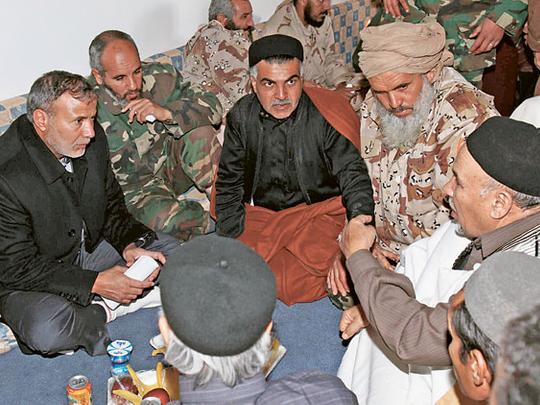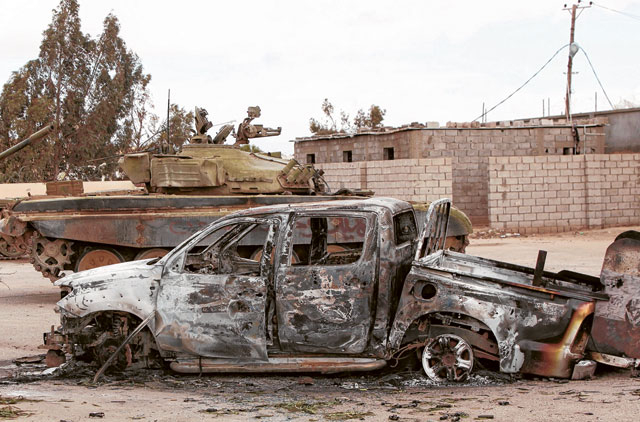
Algiers: Behind Libya's flare-up of violence and protests in the past five days lies a quandary.
How do you share out power in the new Libya when the jumble of tribes, militias and interest groups do not trust each other and, even worse, when the people supposed to be acting as neutral referees are widely mistrusted? It would be a tough problem to solve for any country. For Libya, with a lack of institutions that its people view as legitimate, it seems — for now at least — to be insurmountable.
And so people are tempted to resort to violence in defence of their interests, especially when militia men with anti-aircraft guns and beyond the control of government are already roaming the streets.
The risk is that Libya could slip from being the triumph against dictatorship that was trumpeted just a few months ago by western powers to a maelstrom not unlike Iraq after the US-led invasion in 2003.
"Comparisons to Iraq circa 2004 are tempting," said Geoff Porter, of North Africa Risk Consulting. "Factional fighting, a government whose legitimacy is being openly challenged and no immediate prospect of the return of a peaceful society."
Dissimilarities with Iraq
He said there were important differences between Libya and Iraq, however. In particular, Libya has no occupying power and many of the country's oil fields are back on stream and bringing in cash for the government.
But on the evidence of the past seven days things could get worse. Libya's interim ruling body, the National Transitional Council (NTC), was pitched this week into its biggest crisis since Mummar Gaddafi was overthrown nearly six months ago.
In the eastern city of Benghazi, cradle of the anti-Gaddafi rebellion, crowds disappointed with the performance of the NTC stormed an office building when the council's leader, Mustafa Abdul Jalil, was inside. His deputy later resigned.
Two days later, the town of Bani Walid, home of the country's most powerful tribe, the Warfallah, took up arms and forced the militia stationed there by the NTC to flee.
That came against a background — almost routine for Libya since Gaddafi's rule ended — of regular gunfights between rival militias in Tripoli and turf wars between neighbouring tribes.
Each of these flare-ups were triggered by their own set of circumstances but they have a common theme: a lack of faith that Libya's transition will deliver an equitable distribution of power and a fair share of its oil wealth.
Libya is caught in a Catch-22: the country needs an election to create legitimate institutions, but without a legitimate institution to oversee the election, the process will not work.
Mustafa Fatouri, a Libyan writer and academic originally from Bani Walid, said underlying the revolt in the town was a fear that the Warfallah tribe is going to be deprived of its rightful place under the new order.
"In numbers the Warfallah dominates Libya and if there is going to be one man, one vote and if this tribe, along with a couple of others..., get organised then they will dominate political life for decades to come," he told Reuters.
Tribe being squeezed
But there are signs the tribe is being squeezed. In Tripoli, the influential players are from cities like Benghazi, Misrata and Zintan, which led the fight against Gaddafi's forces during the nine-month civil war.
In Bani Walid, which held out for months against the anti-Gaddafi forces before suing for peace, the atmosphere is one of neglect.
"The NTC has played a negative role... The goal is to teach Warfallah a lesson," Fatouri said. "It will be bloody and fruitless. Warfallah will never give in. Not in a hundred years. They will keep trying to assert their own authority."













